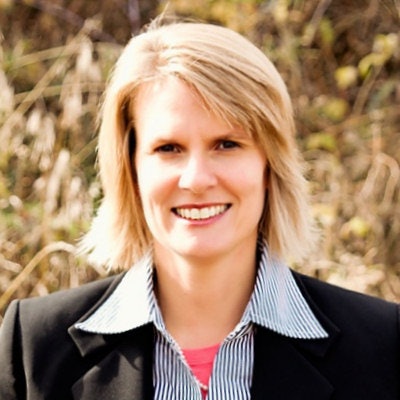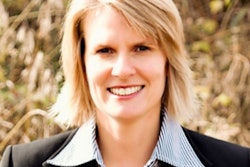
A recent group activity reminded me about the power and control issues we all possess. Some people really like control. Some prefer a lack of control. Then there are numerous degrees of comfort levels within these two parameters.
Our group completed the DiSC testing to help us understand our own preferences and our own personality styles. DiSC is an acronym for the following personality styles: dominance, influence, steadiness, and conscientiousness.
 Lisa Knowles, DDS.
Lisa Knowles, DDS.There are no right personalities or best styles when it comes to these types of tests. The clear winner is the person who finds out a little bit more about herself or himself and recognizes the styles of someone else. It makes work environments more manageable once these preferences are understood.
Let me give you an example. For the longest time, I thought my former office manager was crazy for labeling her pens and pencils and demanding that every pen be returned to her desk each night before she left the office. What I didn't know, at the time, was her steadiness preference. I thought she was simply a bit neurotic about pens and pencils. Although she did not take the DiSC test, I look back and speculate that her style fell into that steadiness category.
Had I known this then, I bet I would have understood her more and probably been a better boss to her. I would have approached her differently. I would have had more patience for her steadiness while working to get so much done in my "D" and "i" preferred way.
Communication patterns
I was not aware of my need for control, nor was I aware of her need for order. My personality tested out as a "D" for dominating, according to the DiSC results sheet. This helps explain how much I like to get things done and that I value blunt conversations. However, my "i" (influence) side in me likes to have a good time and socialize, so influencing people is way more important than worrying about structure and order -- like where the pens and pencils are each night.
At first glance, this seems like a match made in heaven: I get to do the things I like to do, and my teammate ensures the structure and details are all in order. Perfect, right? Wrong!
It was wrong because, at the time, I was completely unaware of this match. I simply let the personality differences get to me and drive me away from this person. I did more to stay out of this person's way than to foster any type of leadership development. We clashed. We were so different, and I failed to realize how good that was for my business.
6 steps
So how do we recognize these personality types within our offices, and what do we do to balance the mix of styles? Here are six steps:
- Consider offering a personality test prior to hiring. If you are looking for an organizer with HIPAA materials and licensing regulations, you may want to think about hiring someone with more "S" or "C" skills in his or her repertoire. If you are looking for a talkative influencer, then someone with more "i" could be a better choice. Remember, however, each one of us has all of these skills in our bag of tricks. We just draw out certain traits more often because we prefer to use those traits. There are hiring companies that use personality tests like the DiSC test to help dental offices match with dental personnel.
- Ensure all members of the leadership team take this type of test first. Then, work through the follow-up steps and feedback session to help them get a grasp on the results. Self-awareness is a powerful tool to help leaders understand their relationship with control and how to use it.
- Have the leaders provide the test to their team members. Share the results of everyone's preferences if everyone is willing. At first, this may seem a bit too revealing for some in the group, but if explained well, and if the leaders express their styles first, the goal to understand each team member's preferences results in better team cohesiveness and better productivity.
- Relate back to these personality types often while working through new projects. Certain projects often call for certain personality types. If, for example, your practice wants to be more visible in the local community, it may be helpful to have a social influencer attend several functions. However, it may also be helpful to have someone with more steadiness attend to help him or her remember to write down all new contact names and numbers.
- Value diversity. As you can see, it's imperative to have all kinds of styles and preferences on a team. When the team is small, it's important to have members with a knack for many traits. As the team grows, a more specialized approach can occur.
- Show appreciation for each and every personality type and preference. It's hard to give up control in a situation, and it's easy to assume our own style is the best way to find success. Resist this temptation and listen to the diverse perspectives of the team.
Being a leader is challenging -- especially when you're leading in the dark, with no formal training on leadership development. Learning how to lead has a lot to do with learning how to manage control and power. With so much education, and often titles such as doctor or office manager, we get used to making decisions on our own. We skip checking in with others because of perceived time constraints, or sometimes even an unwillingness to listen to others' opinions. This can be hurtful to our businesses in the long term. We end up with offices where no one wants to share opinions or no one cares anymore.
When we listen to diverse opinions, we release control to the group. We demonstrate a willingness to learn from others, and we find out a whole lot about our businesses. Ultimately, by giving up some of the decision-making power, we strengthen the team and therefore strengthen the overall long-term success of the practice.
Lisa Knowles, DDS, practices in St. Johns, MI, and is the founder and CEO of IntentionalDental Consulting. For more information, contact her at [email protected], or visit her website at Beyond32Teeth.com.
Dr. Knowles has no financial interest in DiSC, and the link is provided for information only. It should not be construed as an endorsement.
The comments and observations expressed herein do not necessarily reflect the opinions of DrBicuspid.com, nor should they be construed as an endorsement or admonishment of any particular idea, vendor, or organization.



















